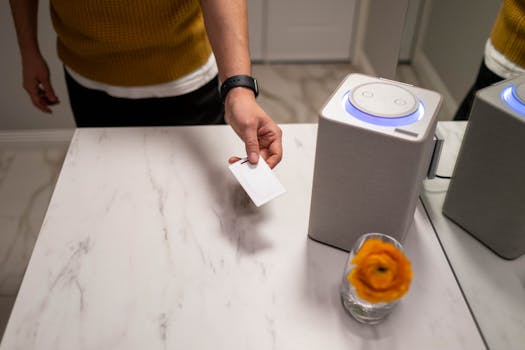
Smart Homes 2025: The Rise of AI-Driven Devices
Introduction to Smart Homes

Smart Homes 2025: The Rise of AI-Driven Devices is revolutionizing the way we live and interact with our living spaces. With the integration of Artificial Intelligence (AI) and Internet of Things (IoT) technology, smart homes are becoming increasingly intelligent, efficient, and convenient. In this article, we will explore the current state of smart homes, the benefits of AI-driven devices, and the future of home automation.
Smart homes are no longer just a concept, but a reality that is changing the way we live, work, and interact with our surroundings. With the use of AI-driven devices, smart homes can learn our habits, preferences, and routines, and adjust themselves to create a personalized and comfortable living experience.
Benefits of AI-Driven Devices in Smart Homes

The benefits of AI-driven devices in smart homes are numerous. Some of the most significant advantages include:
- Energy Efficiency: AI-driven devices can optimize energy consumption by learning our schedules, habits, and preferences, and adjusting the lighting, temperature, and other systems accordingly.
- Convenience: With AI-driven devices, we can control our smart homes with voice commands, mobile apps, or automated routines, making it easier to manage our living spaces.
- Security: AI-driven devices can detect anomalies, suspicious activities, and potential security threats, providing us with an added layer of protection and peace of mind.
- Personalization: AI-driven devices can learn our preferences, habits, and routines, and adjust the lighting, temperature, music, and other settings to create a personalized living experience.
Future of Home Automation

The future of home automation is exciting and promising. With advancements in AI, IoT, and other technologies, we can expect to see even more innovative and sophisticated smart home devices and systems. Some of the trends that are likely to shape the future of home automation include:
- Increased Adoption of Voice Assistants: Voice assistants, such as Alexa, Google Assistant, and Siri, are becoming increasingly popular, and are likely to play a major role in controlling and interacting with smart home devices.
- Growing Use of Biometric Authentication: Biometric authentication, such as facial recognition, fingerprint scanning, and voice recognition, is becoming more prevalent, and is likely to replace traditional authentication methods, such as passwords and PINs.
- Increased Focus on Energy Efficiency and Sustainability: As concern for the environment grows, smart home devices and systems are likely to focus more on energy efficiency, sustainability, and reducing carbon footprint.
Conclusion

In conclusion, Smart Homes 2025: The Rise of AI-Driven Devices is transforming the way we live and interact with our living spaces. With the integration of AI and IoT technology, smart homes are becoming increasingly intelligent, efficient, and convenient. As we look to the future, we can expect to see even more innovative and sophisticated smart home devices and systems, driven by advancements in AI, voice assistants, biometric authentication, and energy efficiency.






